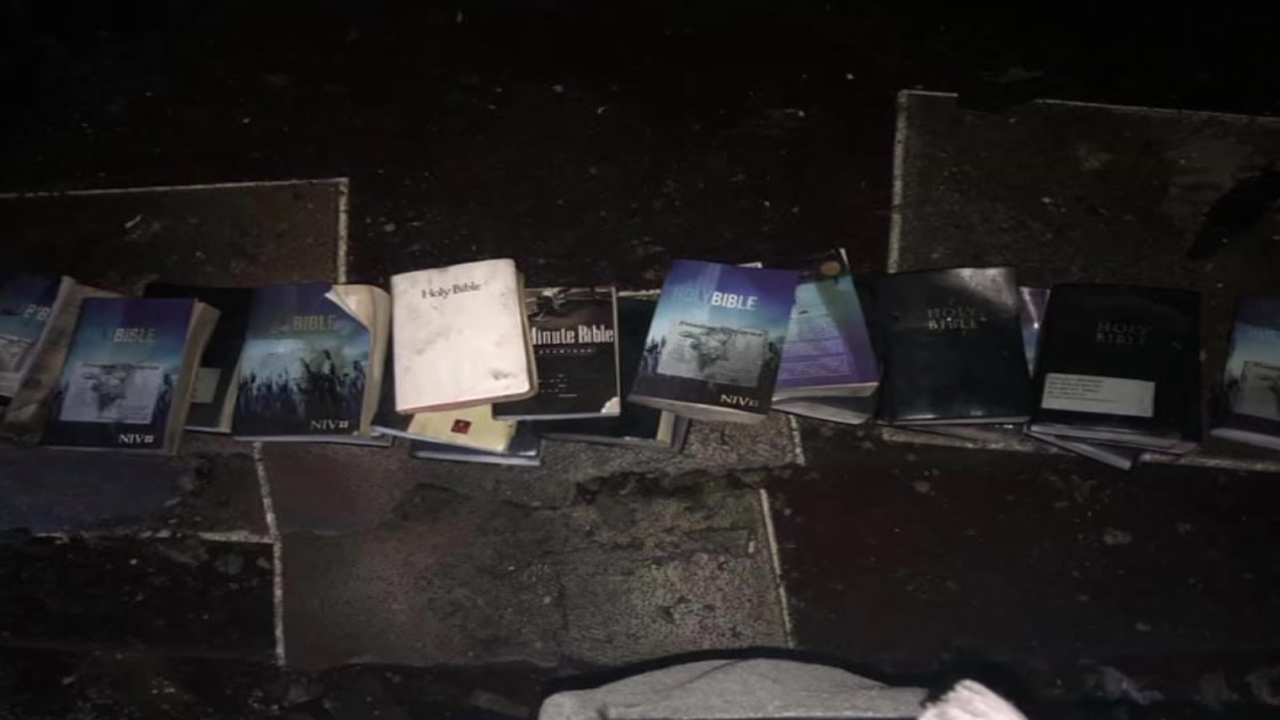Have you ever wondered why Bibles are often found intact amidst the ashes of a fire, while other items are completely destroyed? The mystery behind why Bibles do not burn in fires has intrigued many for years. In this blog post, we will explore the fascinating reasons behind this phenomenon and uncover the potential spiritual significance that lies within.
Understanding why Bibles remain unscathed in fires can offer us a deeper appreciation for the power and protection of these sacred texts. By delving into this curious occurrence, we may also gain insight into the resilience and enduring nature of the messages contained within the pages of the Bible. Join us on a journey to unravel the mysteries of why Bibles defy the flames and emerge untouched, shedding light on a captivating aspect of faith and spirituality.
Why Bibles Are Fireproof: Exploring the Mystery Behind Their Resistance to Flames
Bibles have long been associated with miraculous stories of survival in fires. It has been reported numerous times that during house fires or other catastrophic events, Bibles have remained intact or survived with minimal damage while everything else around them was reduced to ashes. This phenomenon has sparked curiosity and debate among believers and non-believers alike.
One of the most common explanations for why Bibles do not burn in fires is the belief in divine protection. Many people of faith see the Bible as a sacred and holy book, and they believe that God intervenes to protect it from destruction. This idea is deeply rooted in religious beliefs and has been a source of comfort and inspiration for many throughout history.
Another possible explanation for this phenomenon lies in the physical composition of the Bible itself. Traditional Bibles are usually printed on thick, high-quality paper that is resistant to flames. The covers of Bibles are often made of sturdy materials such as leather or hardboard, which can withstand high temperatures for a certain period of time. Additionally, some Bibles are adorned with gold leaf or other materials that have high melting points, further contributing to their resilience in fires.
Furthermore, the compact and tightly bound nature of Bibles may also play a role in their ability to survive fires. The pages of a Bible are usually tightly packed together, creating a solid block that can be more resistant to flames compared to loose sheets of paper. The tight binding of the book also helps to protect the inner pages from direct exposure to fire, thus increasing the chances of preservation.
It is important to note that not all Bibles are immune to fire damage. In cases where the intensity of the fire is extremely high or the duration of exposure is prolonged, even Bibles may succumb to the flames. The survival of a Bible in a fire should not be seen as a definitive proof of divine intervention, but rather as a curious and awe-inspiring occurrence that invites contemplation and reflection.
In conclusion, the phenomenon of Bibles not burning in fires can be attributed to a combination of factors, including religious beliefs in divine protection, the physical composition of the book, and its tightly bound structure. While the exact reasons behind this phenomenon may remain a mystery, the stories of Bibles surviving fires continue to captivate and inspire individuals around the world.
Why don t Bibles burn in fire?
Bibles are often said to be fireproof because of the materials they are made of. Traditional Bibles are usually printed on high-quality paper that is thicker than regular paper, which makes it more difficult to ignite and allows it to burn slower. Another reason why Bibles may not burn easily is the fact that they are often bound with leather covers or other fire-resistant materials, which can protect the inner pages from catching fire.
It’s important to note that while Bibles may resist burning better than regular books, they are not completely fireproof. If exposed to high enough temperatures or flames for an extended period of time, a Bible will eventually catch fire and burn like any other paper-based material.
Is it illegal to set a Bible on fire?
In the context of Bible, setting a Bible on fire can be seen as disrespectful and offensive to those who hold the Bible sacred. However, there are no laws that specifically prohibit the burning of religious texts in most countries, including the United States where freedom of expression is protected by the First Amendment. It’s important to consider the cultural and moral implications of such an action and to be mindful of how it may affect others.
Why books don t burn in fires?
Books don’t burn in fires because the Word of God is eternal. The Bible contains timeless truths and teachings that cannot be destroyed by physical flames. In addition, many believe that God’s protection extends to His written word, preserving it from harm. Throughout history, there have been numerous accounts of Bibles surviving fires and other disasters, further solidifying the belief in their resilience. Ultimately, the power and significance of the Bible transcend earthly elements, making it impervious to destruction.
Was the Bible untouched in the house fire?
Yes, the Bible was untouched in the house fire.

